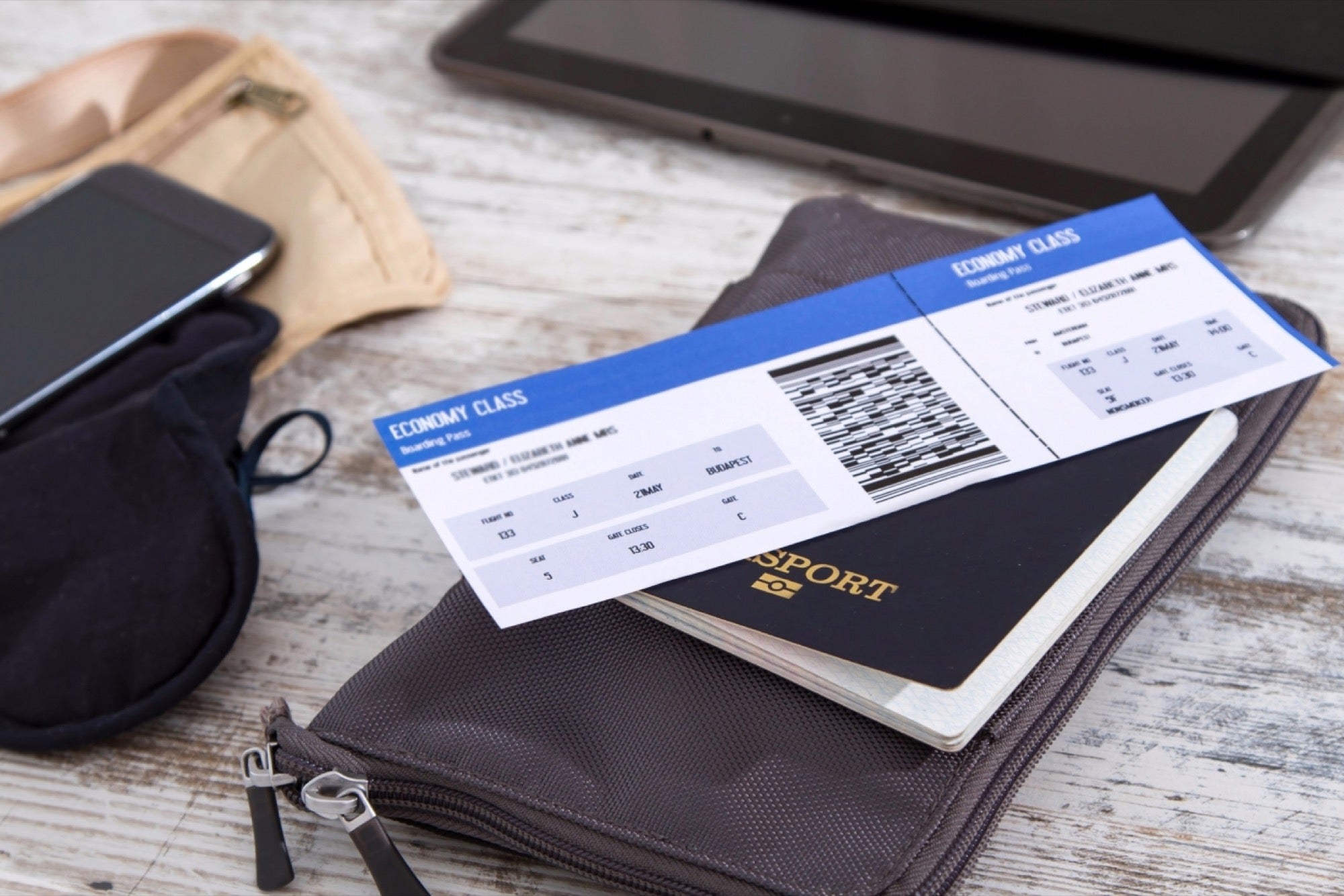4 Credit Card Tips to Make Business Travel Easier Businesses are sending their employees back on the road. Are you using your travel credit card rewards to maximum advantage?
By Thomas Donaldson Edited by Dan Bova
Opinions expressed by Entrepreneur contributors are their own.

With the economy roaring back to life and airline ticket prices falling, many businesses are sending their employees back on the road in order to connect with clients and co-workers.
If you too are navigating the friendly skies with more frequency than before, you may want to consider the following travel credit card tips for business travelers.
Related: Why Airline Loyalty May No Longer Pay Off
1. Stay flexible.
It can be tempting for business travelers to stay loyal to a single airline, but you shouldn't take it for granted that your airline will stay loyal to you. Airline frequent flier programs have become less rewarding over the last few years by offering fewer upgrades to elite fliers and requiring more miles than ever for award tickets.
Instead, travelers should consider earning flexible travel points in rewards programs that may be redeemed in a variety of different ways. This way, you're not locked into one airline if its policies change to provide fewer benefits.
One great option is the Chase Sapphire Preferred Card, which offers double points for all travel purchases. These points are worth 1.25 cents each toward travel reservations booked through Chase's web site. In addition, rewards may be transferred to airline miles or hotel points.
2. Maximize your miles.
Another way to get the most bang for your rewards buck is to use a travel credit card that offers "miles" in a bank-run program. For example, the Capital One Venture Rewards Credit Card and the Barclaycard Arrival Plus World Elite MasterCard both offer double miles on all purchases, and each mile is worth one cent as statement credits toward travel reservations.
In addition, the Discover it Miles card has no annual fee and offers 1.5 miles per dollar spent toward travel-statement credits or cash back. The beauty of this system is that you book your award travel the same way you book any other reservations, and you can even earn additional rewards points or miles on the travel you book using award travel.
Related: Business Travelers: Is Loyalty Dead?
3. Forget about fees.
Some credit cards are starting to offer statement credits toward airline fees, like baggage charges or seat selection. For example, The Platinum Card from American Express card offers $200 in statement credits each year toward fees, including those for checked bags, ticket changes and in-flight purchases of meals and drinks.
Other good options for credit cards that will cover some of your pesky airline feeds include the Premier Rewards Gold Card from American Express, which offers a similar annual $100 fee credit, and the Citi Prestige Card, which has a $250 fee credit that applies to virtually any airline charge including ticket purchases.
4. Get global entry.
By far the most important thing that business travelers can do to save time and reduce their hassle is to get a membership in the Global Entry program operated by the U.S. Customs and Border Patrol agency. Global Entry members can speed through immigration upon arrival at U.S. airports and also receive access to the TSA's PreCheck program, which offers expedited security for domestic flights.
Related: The Joys and Pains of Elite Airline Status
There is a $100 application fee for Global Entry, but several credit cards offer statement credits to pay this fee; these include the aforementioned Platinum Card from American Express, and the Citi Prestige.









